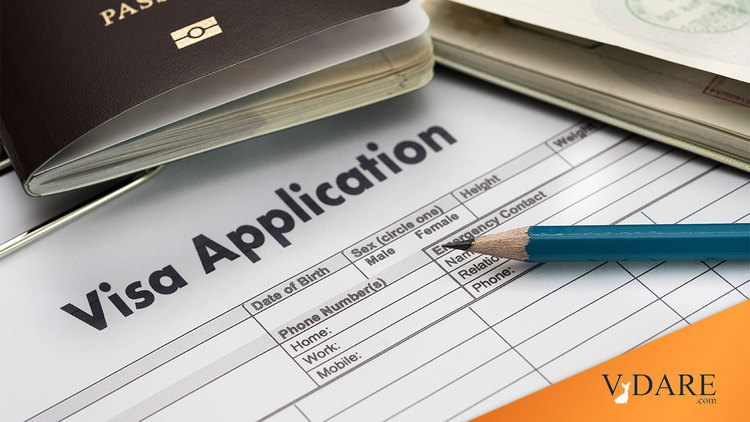


By Rob Sanchez
01/03/2011
As the fiscal year draws to a close employers are scrambling for the last few H-1B visas available before the yearly cap is reached. As of mid-December 2010, there were 53,900 applications filed, meaning that there are only slightly more than 6,000 visas remaining for 2011. It’s worth noting that the last several years the cap was met within days of the start of the visa lottery but the visas for 2010 took until 2011 to run short. This can be interpreted two different ways — either employers aren’t hiring as many H-1Bs as they used to because of the lousy economy, or employers aren’t hiring anybody.
An article about what employers can expect when they try to hire a foreign worker by using the H-1B visa: "How to Obtain an H1B Visa, As 2010 nears its end, the number of available H-1B visas is dwindling. Here’s how to go about some last-minute shopping for one.", by Darren Dahl, Inc.com, Dec 17, 2010
For example, Laura Grimmer needed to find an employee with specific technical expertise for her business-to-business public relations firm, Articulate Communications, in New York City. The problem was, she couldn’t find the right person. "We need employees with very specific skills and interests who can marry marketing, PR and communications with technology, enterprise-class software and vertical markets like financial services, pharmaceutical and digital media," Grimmer says. "While these kinds of workers may be clustered in parts of the country like Boston and San Francisco, it’s actually been quite difficult for us to find people in the New York area that meet our requirements and who want to work at a small firm."That’s why Grimmer decided to look outside the country — to Turkey, in fact — to find the perfect fit.
So, if Grimmer is to be believed, a company named Articulate Communications couldn’t find a single person in the United States that had the skills they needed in marketing and PR. They had no choice but to hire somebody from Turkey.
Unfortunately companies can get away with this kind of sleazy behavior because H-1B doesn’t mandate that qualified Americans must be given first consideration for the jobs. The Department of Labor posted the following for their strategic plan for the years 2006-2011:
" … H-1B workers may be hired even when a qualified U.S. worker wants the job, and a U.S. worker can be displaced from the job in favor of the foreign worker."
The DOL removed that quote from their website because of the controversy it caused. However controversial it may have been it accurately described the H-1B visa program.
Employers constantly whine about how difficult and expensive it is to obtain H-1B visas. It’s usually just a matter of routine paperwork and some filing fees, as confirmed by Grimmer in the quote below:
While most entrepreneurs might be intimidated by what sounds like yet another government application process fraught with red tape, Grimmer says it’s not really as bad as you might think. "I thought it would be an arduous, painful and frightfully expensive process, but it turned out to be fairly straightforward and simple," she says, adding that your first step should be to hire the services of an experienced immigration lawyer who can walk you through the process.In summary, then, companies can expect to pay upwards of $2,700 plus legal fees for each application — something that can sometimes give entrepreneurs sticker shock since companies are expected to foot the bill. But, there can be room for negotiation sometimes, where the company and the applicant agree to split some of the legal costs — something that Grimmer from Articulate took advantage of. "The fact that my employee was willing to split the cost and do much of the legwork on the visa was a big reason why I decided to take a chance," she says.
The law prohibits employers from imposing the H-1B processing fees with their employees but employers do it anyway because there is very little enforcement of that regulation. The reason the regulation was put into place was to prevent H-1B from becoming indentured servitude program.
H-1B Regulation: 655.731(c)(10)(ii) (ii) A rebate of the $500/$1,000 filing fee paid by the employer, if any, under section 214(c) of the INA. The employer may not receive, and the H-1B nonimmigrant may not pay, any part of the $500 additional filing fee (for a petition filed prior to December 18, 2000) or $1,000 additional filing fee (for a petition filed on or subsequent to December 18, 2000), whether directly or indirectly, voluntarily or involuntarily.
There are hazy areas in the regulations — like for instance employers might be able to stick the H-1B applicant with attorney fees or other costs that are not explicitly spelled out in the regulations. Sometimes employers get in trouble for imposing the costs on employers — case in point read: "Caddo Parish Didn’t Read The Fine Print", by Rob Sanchez, 29 October 2009.